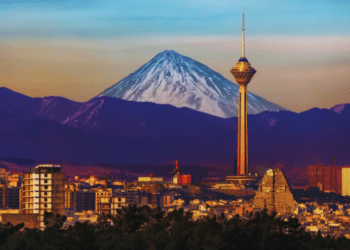If, as StatsCan data seem to show, our friendships are becoming more numerous but contact with friends less frequent, what does this say about our closest relationships? Brian Lee Crowley writes in the Ottawa Citizen that “True friendship, unlike just ‘knowing’ or ‘being acquainted with’ someone, is a distinction we sometimes seem to be in danger of losing in the era of Facebook friends numbered in the hundreds if not thousands”.
By Brian Lee Crowley, May 22, 2015
US President Harry Truman once famously advised Washingtonians who might be forlornly searching to make a friend in town to “get a dog.”
This line inevitably makes us smile but how many of us, I sometimes wonder, can explain why the idea of making a human friend in Washington might appear such a hopeless, indeed a preposterous idea?
Because real friendship by its nature exists for its own sake. It doesn’t matter how close or intimate the relationship is; if there is an ulterior motive behind it, it is not friendship but something else. That’s why the first instinct of the betrayed or manipulated is the plaintive wail, “But I thought you were my friend.” In other words you cannot make a friend in Washington because everyone there is always on the lookout for the main chance.
That makes British writer E. M. Forster the polar opposite of the Washington view of friendship. Author of, among other things, A Passage to India, Forster wrote, “if I had to choose between betraying my country and betraying my friend, I hope I should have the guts to betray my country.”
True friendship, unlike just “knowing” or “being acquainted with” someone, is a distinction we sometimes seem to be in danger of losing in the era of Facebook friends numbered in the hundreds if not thousands. If I’m right too that real friendship seeks nothing other than the friendship itself, it might start with shared interests but inevitably moves beyond that to a genuine affection for the character of the person beyond those interests. That’s why real friendship can so often transcend deep disagreements over politics or philosophy or sport that would doom lesser relationships.
There are too many stories of friendships blossoming through correspondence to conclude that face-to-face ones are the only true friendships. On the other hand the self-revelation to be found in the letters of Johnson or Pope or Voltaire can hardly be replicated in social media status updates or tweets, no matter how numerous.
With these thoughts of friends and friendship in mind, it was with some trepidation that I approached Statistics Canada’s recent Trends in Social Capital in Canada. Would this prosaically-named article reveal that Canadians have fallen victim to the myth of the electronic age that friendships are measured by the gross rather than by their intimacy and authenticity?
Yes and no. Ever down-to-earth, about three fifths of our compatriots have been saying since 2003 their close friends could be counted on the fingers of one hand. On the other hand their share of the population is gently declining, while the relatively small number who claim more than 10 (or even more than 20!) close friends is rising steadily.
Still, at all age levels people seemed quite able to distinguish between such close friends (“people who are not your relatives, but who you feel at ease with, can talk to about what is on your mind, or call on for help”) and those with whom they have more of a relationship of reciprocal self-interest, like acquaintances and neighbours, the “other friends” with whom they find it useful to be able to exchange favours.
But while the number of close friends reported is on the rise, the quality of the contact we have with all friends and family is declining. We see one another less and, counter-intuitively, we even communicate less electronically than we did even a decade ago, although StatsCan is quick to point out that this may be due to new means of communication that did not exist even a decade ago, such as texting for which they have little data.
In other words, we appear to be moving inexorably into a world where friends will too often be easily made but known less and our contact will be more episodic and superficial. It is not clear the future will be that friendly after all.
Brian Lee Crowley (twitter.com/brianleecrowley) is the Managing Director of the Macdonald-Laurier Institute, an independent non-partisan public policy think tank in Ottawa: www.macdonaldlaurier.ca.




